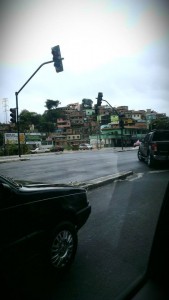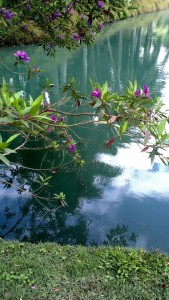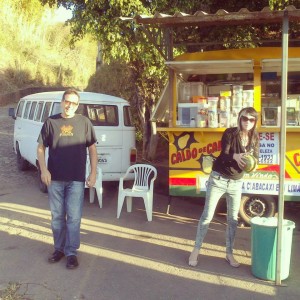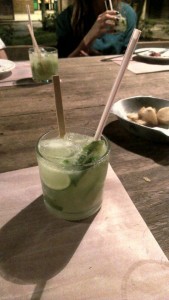I have to admit, I’d been a little apprehensive about this trip. This was the first time I’d visited South America, let alone solo, and since that initial invitation to present arrived in my inbox a little over a month ago, my head had been filled with cautionary tales from everyone with whom I’d shared my travel plans.
Now, on the penultimate day of my visit to Belo Horizonte, I can honestly say I am devastated to be leaving. Despite my eleventh hour travel and lodging arrangements and sparse audience (problems exacerbated, or indeed caused, by my woefully inadequate grasp of Portuguese), I can honestly say that I’ve never before had such a rich and eye-opening conference experience.
This has been nothing like the traditional, slick, and sanitised Western conference experience to which I’ve grown accustomed. The programme was no more than a loose hint at timings (Brazilians, I have learned, are very relaxed about punctuality), posters were strung wildly with (what appeared to be) repurposed wire coat-hangers, and there were no lavish spreads of patisseries and exotic teas during symposium breaks (that is not to say, of course, that Brazilian cuisine is lacking – more on that later).
What there was, however, was a gathering of incredibly hospitable and astute neuroscientists, all with a keen interest in a shared cause – drug abuse. A carefully selected programme of speakers, hailing from multiple continents and disciplines, presenting cutting-edge science, was matched by an equally impressive daily schedule of cultural events. These included a moving performance from Orquestra Jovem de Contagem. This is an orchestra of children hailing from the very poorest areas of the city (the favelas), tutored and directed by a Professor of Music at our host institution, the Universidade Federal de Minas Gerais. Their forthcoming US tour stands testament to their talent.
But enough of the conference. I learnt more outside of the classroom. I spent one evening with my hosts at a beautiful local restaurant discussing Brazilian drug culture and political corruption, being treated to traditional Brazilian cuisine. I sampled my first (and second and third) caipirinha(s). I stayed up until the early hours with six wonderful Professors kind enough to tolerate my naive (but enthusiastic) ramblings, ensconced in an impassioned discussion of science and policy. I was driven to the beautiful Inhotim Institute, a botanical garden and contemporary art gallery, and to Ouro Preto (“Black Gold”), an 18th century mining town famous for its exquisite Baroque architecture, by three American Professors sweet enough to take me under their wing for the week.
I was struck by the immediate contrast between first and third world, painfully apparent on even the shortest journey through this city. I watched wild capuchins play in the rafters of a local restaurant, drank freshly pressed sugarcane juice (delicious) and coconut milk (less enjoyable –see picture) by the roadside, and cycled up russet-red dirt tracks into the mountains encircling the city to greet a sunset never to be paralleled. And there may or may not have been a sighting of a chupacabra. Oh, wait, a capybara.
If you’ve persevered through my confused ramblings this far, thank you. If you’ve skipped ahead to what appears to be the concluding paragraph, nice work. It is. So here I sum up: This trip has taught me two things, which I hope to share. Firstly, don’t limit your travel to the ‘Western’ world – you’ll be missing out, you just don’t know it yet (I didn’t). Secondly, embrace opportunities to travel to conferences alone – you’ll make so much more of the experience, and meet so many more people, when pushed outside of the comfortable and familiar. Frederico, David, Colin, Bob, Monica, Sarah, Yael, Analice, Ricardo, Reinaldo – if you happen to stumble upon this, thank you for making my time in Brazil such an incredible and memorable experience. I can’t wait to see you all again. Finally, I want to thank our TARG Prof, Marcus, for very generously letting me travel in his place. This was an incredible opportunity. I hope you enjoyed the cachaça!
Obrigado por ler!
This article is posted by Jen Ware




